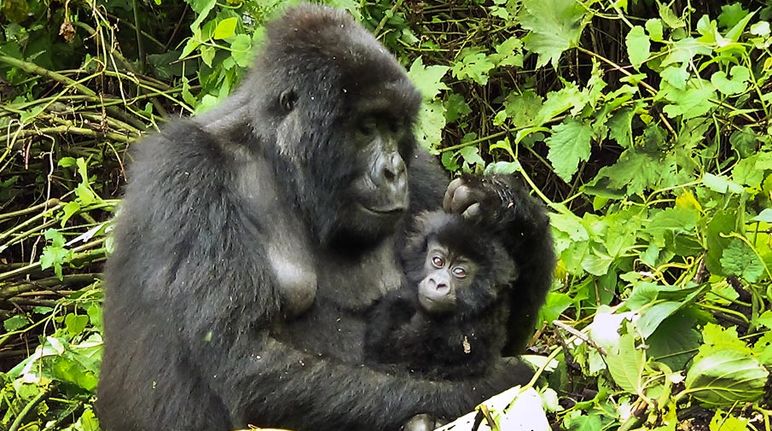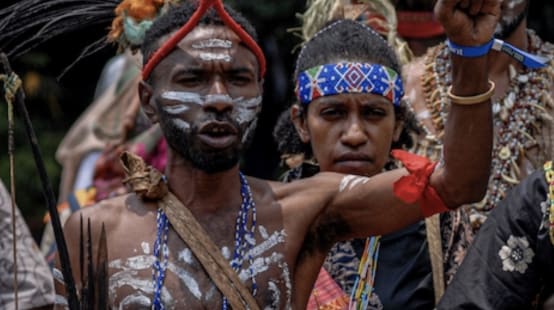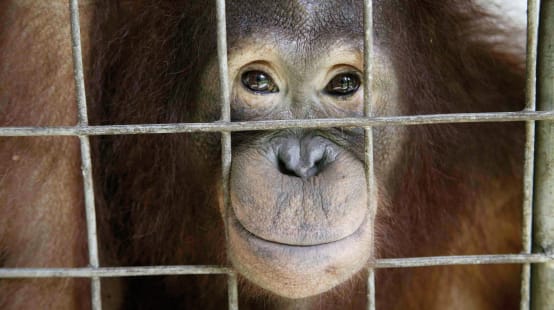Congo: oil company threatens gorilla forest
 Gorilla family in Virunga National Park
Gorilla family in Virunga National Park
380 rare mountain gorillas live in Virunga National Park in large family groups. Now Britain’s SOCO International plc wants to drill for oil in the park. This would be the end of the park and of the gorillas. Please demand the preservation of Virunga National Park!
News and updates Call to actionTo: The Board of Directors, SOCO Int. plc, The President of the DR Congo, The European Commission, Directorate-General for Communication
“Prevent oil drilling in Virunga National Park and save the gorillas”
The dense montane rainforest in the Virunga National Park is one of the last remaining habitats of the endangered mountain gorillas. Virunga is located in the eastern part of the Democratic Republic of the Congo and is the oldest national park in Africa. The park, about twice the size of Rhode Island, and along the shores of Lake Edward, was designated a World Heritage Site by the UNESCO. In addition to the gorillas, it is home to other endangered species. Now the national park, the gorillas and the people living along the lake face an existential threat.
In late 2011, the UK-based oil company SOCO International was granted exploitation rights for oil blocks in the eastern part of the Congo. Up until then, an exploitation moratorium had been in place for the country’s sensitive rainforest regions. Sixty percent of Block 5 covered by SOCO fall within the borders of Virunga. As Ephrem Balole of the park administration said: “The company has received a permission to start exploration in the park by presidential decree. However, law prohibits the exploitation of natural resources within the park.”
The park administration and the local population have joined forces in an attempt to prevent the drilling, which would destroy large parts of the Virunga rainforest and also threaten Lake Edward. The lake provides the livelihood of many people in the region. The UNESCO has issued a sharply worded note of protest to the Congolese government, declaring the oil drilling to be in violation of international law. The EU is providing funding for Virunga, but to date, only a small group of members of the European Parliament has issued a resolution against the drilling activities planned in the park.
Please demand the preservation of Virunga National Park.
BackgroundInterview was realized by Rainforest Rescue* during the visit of Ephrem Balole in Hamburg on 17. Dezember 2012.
Balole: I am Ephrem Balole, 45 years old, and I work in Virunga National Park as a planning officer and I supervise logistic support. I'm not a ranger myself, but I work in the logistics department, helping with ranger deployment and so I know what is ongoing on the ground.
Rainforest Rescue: Ephrem Balole, could you please describe under what kind of extraordinary conditions the rangers in the National Park have to work – especially in the context of the civil war?
Balole: Yes, it has been difficult to work in the context of war. We were expecting to realize $1.5 million from tourism and everything was going well until early April, when we were obliged to stop tourism because we could not provide security for visitors. So we changed into emergency situation. When the rebels occupied the gorilla sector, we could not access it for the past eight months, not even the rangers. It was too dangerous. We feared that the gorillas could suffer collateral damage but in early December, when we received the authorization of the rebels to come back to the gorilla sector, we found five of the six gorilla groups with five new babies. We told the rebels and soldiers clearly that we are not involved in their war business. We have to work to protect Virunga National Park, which is a World Heritage Site.
Rainforest Rescue: Could you please describe the current situation of illegal hunting in the Virunga National Park, and what is the park management doing against poaching?
Balole: The poaching is conducted by a huge network. There is a mafia network to sell this bushmeat. The poaching of elefants is too spread in all Africa. We have three main populations of elephants. To protect these populations, we have committed three teams of rangers whose work is to monitor the elephant. We have intelligence and when we conduct a poacher's place, where poachers hide – we do it.
Rainforest Rescue: Africa is one of the hotspots of illegal logging. What are the effects of illegal logging on Virunga National Park?
Balole: We don't experience illegal threat of loggers, but logging occurs far from the park in non-protected areas. But what hits Virunga is the illegal threat of charcoal, which can be used as domestic fuel. That is the main problem for us because the big city of Goma, with one million inhabitants, does not have enough electricity. So the housholds have no energy. For domestic cooking the main fuel used is charcoal. What we are planning now is hydroelectricity because it can slow down the demand and then there will be no incentives to destroy the forests. And it's possible because near Virunga National Park we have waterfalls. We have a pilot project, in which we are finishing a 400 KW dam, where we channel the water, turbine it and return it to the river. It doesn't have a huge impact on the ecosystem, and we don't destroy anything.
Rainforest Rescue: The Virunga NP is also threatened by oil production projects, planned by the British company SOCO. What is the current situation?
Balole: The oil company got the authorization by presidential decree to conduct some research of oil in the area. Fortunately, there is a conservation law from 1969 that prohibits extractive activity in the park. SOCO International, which owns Block 5 in Virunga National Park, is conducting aereal research outside the park – this is not illegal. But we are sure that this will not be sufficient to know whether there is oil and in which quantity. They might need to conduct some research on the ground. That would be illegal.
Rainforest Rescue: So the oil production represents a big threat for the park?
Balole: Yes.
Rainforest Rescue: Some years ago critics pointed out that the park management is not working in favor of local communities that live in the Virunga region. Some rangers even expelled people from the National Park. What is your opinion on that?
Balole: In fact, Virunga National Park shares 30 percent of its revenues with the community. With these 30 percent we recently built nine schools, a healthcare center and a water supply network. And now we have a hydrodam. These are clear examples of our relationship with the community. We also need to implement local peoples' livelihood in this area because the local people are really poor and wildlife conservation can be a leverage factor for their development. We need to set up a development scheme through the park. If the park is peaceful we can set up tourism – we have a huge potential. And for tourism we need food, we need accomodation, transportation and a huge network linkage in the community. We have the potential, but we have problems implementing all this on the ground.
Rainforest Rescue: Ephrem Balole, thank you very much for your time and the interesting interview.
* Interview was realized by David Vollrath and Jenna Kulp.
To: The Board of Directors, SOCO Int. plc, The President of the DR Congo, The European Commission, Directorate-General for Communication
Dear Sir or Madam,
SOCO International PLC plans to drill for oil in Virunga National Park in the Democratic Republic of the Congo. According to published plans, sixty percent of the oil concessions for Block 5 issued by presidential decree fall within the borders of Virunga. Experience has shown that oil extraction in sensitive ecosystems such as rainforests inevitably causes grave environmental damage. Even if Block 5 is located at a 37 kilometers distance from the gorilla habitat, drilling activities there nevertheless constitute an existential threat for the great apes – already on the verge of extinction – as well as other animal and plant species. Scientific research has shown that ecosystems limited to small, non-contiguous patches are not viable.
Virunga National Park has been a World Heritage Site since 1979. SOCO International’s exploration project violates the Convention Concerning the Protection of World Cultural and Natural Heritage of 16 November 1972. In addition, the exploration and potential extraction of oil in Block 5 violate the constitution of the Democratic Republic of the Congo. According to the Public Order Act of 1969 on environmental protection as well as the Congolese Mining Code of 2002, resource exploitation in nature reserves is strictly prohibited.
I call on you to comply with national and international law in your project planning. SOCO International plc must immediately cease all oil exploration and extraction activities within the borders of Virunga National Park.
Yours sincerely,
Congo: First success for endangered mountain gorillas

There is new hope for the Virunga National Park in the eastern part of the Democratic Republic of Congo. In this world heritage, the government has opened five areas for oil exploration. Due to worldwide protests of environmentalists, the oil company TOTAL pulled out of the exploration project.
Virunga NP: Interview with park management
380 rare mountain gorillas live in Virunga National Park in large family groups. Now Britain’s SOCO International plc intends to drill for oil in the park. This would spell the end of the park and the gorillas. Rainforest Rescue interviewed Ephrem Balole of the Virunga park managment.













 Recent successes
Recent successes